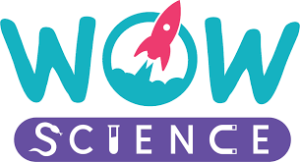Science

Science
Subject Leader: Mrs K Ayoub
The National Curriculum for science aims to ensure that all pupils receive a high-quality science education that provides the foundations for understanding the world.
Through building up a body of key foundational knowledge and concepts, pupils should be encouraged to recognise the power of rational explanation and develop a sense of excitement and curiosity about natural phenomena. They should be encouraged to understand how science can be used to explain what is occurring, predict how things will behave, and analyse causes.
Aims
The National Curriculum for science aims to ensure that all pupils:
- develop scientific knowledge and conceptual understanding through the specific disciplines of biology, chemistry and physics
- develop understanding of the nature, processes and methods of science through different types of science enquiries that help them to answer scientific questions about the world around them
- are equipped with the scientific knowledge required to understand the uses and implications of science, today and for the future
Scientific knowledge and conceptual understanding
The programmes of study describe a sequence of knowledge and concepts. It is important that pupils develop secure understanding of each key block of knowledge and concepts in order to progress to the next stage.
Pupils should be able to describe associated processes and key characteristics in common language, but they should also be familiar with, and use, technical terminology accurately and precisely. They should build up an extended specialist vocabulary. They should also apply their mathematical knowledge to their understanding of science, including collecting, presenting and analysing data. The social and economic implications of science are important but, generally, they are taught most appropriately within the wider school curriculum: teachers will wish to use different contexts to maximise their pupils’ engagement with and motivation to study science.
1. Working Scientifically website dates 2023-2024
The EYFS framework is across seven areas of learning:
- Communication and Language
- Learn new vocabulary.
- Ask questions to find out more and to check what has been
said to them.
- Articulate their ideas and thoughts in well-formed sentences.
- Describe events in some detail.
- Use talk to help work out problems and organise thinking and activities, and to explain how things work and why they might happen.
- Use new vocabulary in different contexts.
- Personal, Social and Emotional Development
- Know and talk about the different factors that support their overall health and wellbeing:
- regular physical activity
- healthy eating
- toothbrushing
- sensible amounts of ‘screen time’
- having a good sleep routine
- being a safe pedestrian
- Understanding the World
- Explore the natural world around them.
- Describe what they see, hear and feel while they are outside.
- Recognise some environments that are different to the one in which they live.
- Understand the effect of changing seasons on the natural world around them.
The programmes of study describe a sequence of knowledge and concepts. It is important that pupils develop secure understanding of each key block of knowledge and concepts in order to progress to the next stage.
Pupils should be able to describe associated processes and key characteristics in common language, but they should also be familiar with, and use, technical terminology accurately and precisely. They should build up an extended specialist vocabulary. They should also apply their mathematical knowledge to their understanding of science, including collecting, presenting and analysing data. The social and economic implications of science are important but, generally, they are taught most appropriately within the wider school curriculum: teachers will wish to use different contexts to maximise their pupils’ engagement with and motivation to study science.
The nature, processes and methods of science
Working Scientifically Targets
St Josephs Progression in Working Scientifically-2023-2024
‘Working scientifically’ specifies the understanding of the nature, processes and methods of science for each year group. It should not be taught as a separate strand.
The types of scientific enquiry should include: observing over time; pattern seeking; identifying, classifying and grouping; comparative and fair testing (controlled investigations); and researching using secondary sources. Pupils should seek answers to questions through collecting, analysing and presenting data.
Spoken language
The national curriculum for science reflects the importance of spoken language in pupils’ development across the whole curriculum – cognitively, socially and linguistically. The quality and variety of language that pupils hear and speak are key factors in developing their scientific vocabulary and articulating scientific concepts clearly and precisely.
At St Joseph’s we use Developing Experts website as we aim to deliver a fun and engaging science curriculum. Through our lessons, we hope that our pupils will develop an enthusiasm for science, a desire to explore the world around them and consider ambitious career paths in science, technology, mechanics or engineering.
Our lessons are purposeful and meet the objectives of the national curriculum whilst simultaneously providing exciting opportunities for pupils to explore and discover the world of science.
Scientific Vocabulary can be found here:

https://www.stem.org.uk/resources/collection/4138/scientific-vocabulary
At St Joseph’s Primary School, children will be provided with a high-quality science education which will then provide the foundations for understanding the world through the specific disciplines of biology, chemistry and physics. This means that, at St Joseph’s the children will receive an ambitious curriculum which is broad and balanced for all pupils. The staff will maintain adapting and developing St Joseph’s science curriculum for pupils with special educational needs and/or disabilities and for more able pupils.

This website provides a variety of science materials. For example, science questions can be answered by a real scientist! There are podcasts, games, puzzles and revision tools that are helpful in consolidating the science topic knowledge. This website, also, provides an opportunity to practise working scientifically skills by suggesting different experiments.



